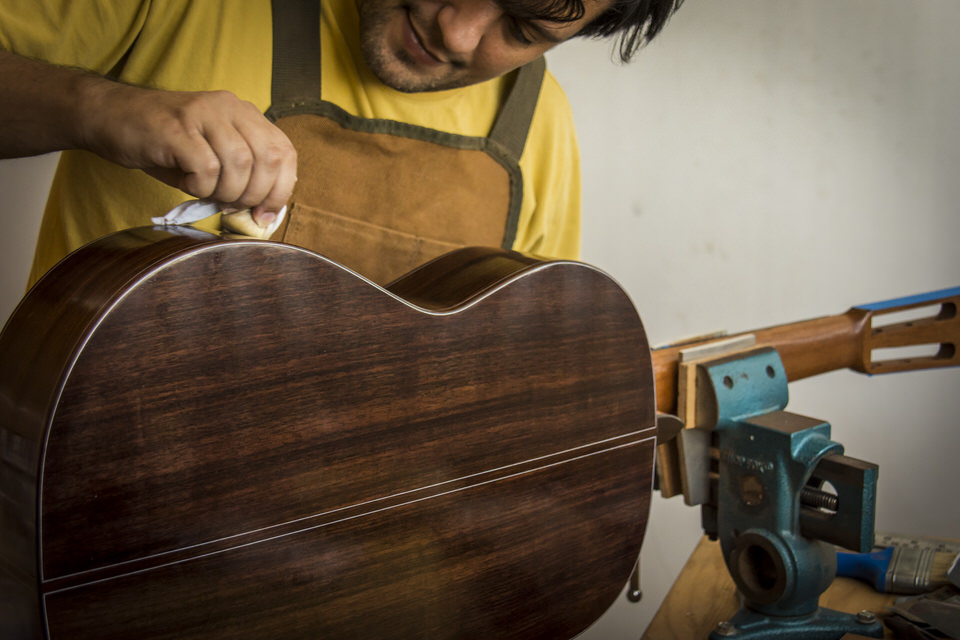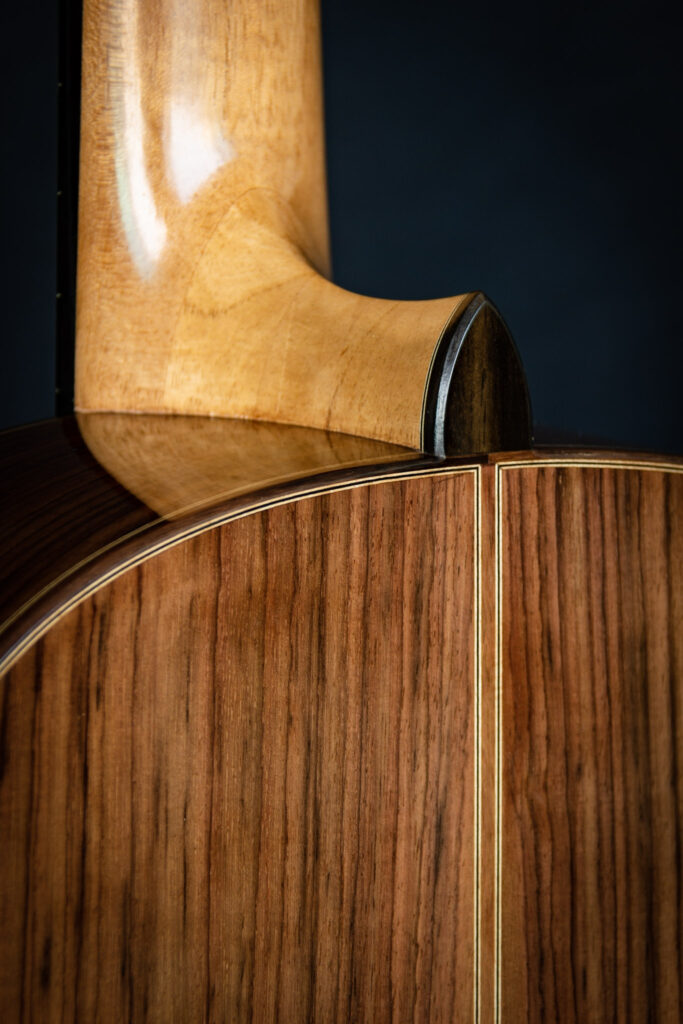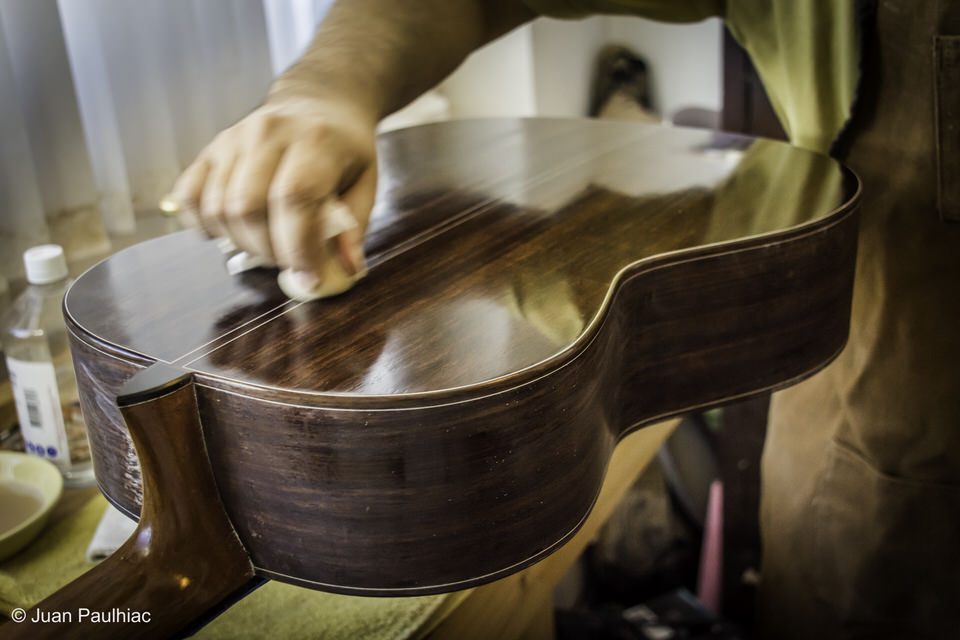

Recommendations
Our guitars are high end instruments of excellent crafstmanship. As such, they are meant to be treated carefully and respectfully. With a few simple considerations, your guitar will provide you with a lifetime of enjoyment.
The best place to keep your guitar when not in use is inside its hard shell case.
Avoid temperature and humidity extremes.
Solid woods provide the best tonal qualities for a guitar, but they are more sensitive to changes in relative humidity. Although we build our guitars in a humidity controlled environment using dry seasoned woods, it is nevertheless important to avoid sudden changes in humidity levels, as well as humidity extremes. If your guitar will be exposed to a low humidity environment, we recommend using one of several humidification methods in order to avoid cracks in the wood.
Sudden changes in temperature and temperature extremes can be just as bad for your guitar. High temperatures may damage your guitar's finish (especially french polish), and loosen glue joints (which in turn leads to cracks). Low temperatures may lead to cracks in the wood and/or the finish.
You would be surprised at the amount of guitar issues generated by humidity and temperature conditions - warped necks, action and buzz problems, cracks, muffled sound and decreased volume, etc.
Always clean your guitar after every use. You only need to wipe your guitar very well with a clean white cotton cloth. If necessary, you may slightly dampen your cloth with water.
Avoid using furniture care products, especially if they contain silicone. Silicone will penetrate through your guitar's finish and into the wood, making future reparations and/or refinishes almost impossible.
Never let your guitar come in contact with solvents and/or alcohol. Alcohol is especially harmful for french polish.
Your guitar is not meant to withstand blows, falls, etc. She is not meant to be soaked.
Mind any potential sources of scratches for your guitar when playing, or when handing her over to another player. Buttons, zippers, belt buckes, watches, rings, necklaces, a pen in a shirt pocket, etc. can easily lead to nasty scratches.
Lattice braced guitars have particularly thin tops, and are especially suceptible to blows, taps, pressure, and fingernail dents. It is advisable that you adjust your playing technique accordingly (as with any other lattice braced guitar). If your playing requires percussive taps on the guitar's top (lattice or traditional), we recommend installing a removable clear plastic scratch plate.
Our Recital guitars feature a bolt-on neck joint. This type of neck joint is extremely solid and stable, and does not affect the guitar's tone. Its added benefit, however, is that it's much more simple to perform service and/or repairs to the guitar's neck (if you take good care of your guitar, this should never be necessary). IMPORTANT: the bolts in the neck block inside the guitar are not for adjustment; DO NOT MANIPULATE, LOOSEN, OR TIGHTEN THESE BOLTS. Your guitar may be seriously damaged if you do so.
Love your guitar and she will return all your love many times over.

